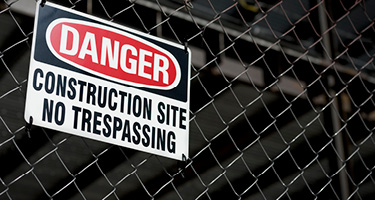Big cities equal big rent. It’s well-known that living in a large urban area comes with costs—rental housing (and housing prices more broadly) chief among them. Boston, like other desirable places, is experiencing a housing shortage that’s driving up rents.
This affects not only new arrivals but also those who have lived in the city for years—individuals and families who find it increasingly hard to stay in their homes because of the rising expense. According to Harvard Business Review, factors such as home-sharing platforms like Airbnb, gentrification, and overall economic trends are placing stress on Boston’s housing market as well.
Rent prices may shift in the future due to thousands left unemployed and unable to pay rent because of COVID-19, but as of right now rent is still high.
We spoke with two Best Lawyers–recognized attorneys about what can be done, legally, to help ease the shortage.
Donald Pinto Jr.
Partner at Pierce Atwood
Recognized for Real Estate Law Since 2018
What can be done to solve this problem?
It’s well-known that “the rent is too damn high” in the Boston metropolitan area. While it’s a complex issue with many causes, from my vantage point as a real estate litigator, one key cause is the proliferation of onerous, smothering land-use regulations that make housing production difficult, if not impossible—creating scarcity that drives up prices in both the rental and ownership markets. Reining in municipal authority to enact limitless regulations would, in the long run, increase production and help bring prices down.
Matthew Lawlor
Partner at Robinson & Cole
Recognized for Real Estate Law Since 2019
Can people legally fight this?
Definitely. The housing affordability crisis in our highest-demand cities, including Boston, is the result of many factors, but regulatory restrictions on new housing that have been in place for decades play a very significant role. Changing these restrictions to allow for more housing production has to be a key part of the solution.
What legal measures can people take?
In Massachusetts, we see efforts [at] regulatory reform at the state level, where housing-production bills that include a change in the two-thirds-majority requirement for zoning amendments—a powerful roadblock to the local zoning changes that need to happen all across the Boston region—have been pending in the current session and are under active consideration. And at the local level, zoning amendments and project approvals are being pursued to allow for the construction of more housing units. A recent example is the approval of the 1,000-unit-plus mixed-use Northland development in Newton, which the Newton City Council approved last year, an approval upheld this week in a citywide referendum invoked by project opponents.
What are the repercussions of this issue, both in general and for the legal industry?
The general-level repercussions have been twofold: growing concern over displacement of existing residents, and then more broadly concern about the effect of increasingly unaffordable rents and housing prices on the Boston region’s long-term health and economic prospects. In the legal field, there’s a focus on displacement/eviction and housing production and using legal means, case by case and at the municipal level, to address those issues.
To the extent that rents and housing prices in the more accessible inner core of the Boston region are increasing more than other parts of the region, that will tend to drive renters and homebuyers to the region’s fringes, exacerbating our congestion and climate-change crises and trading cheaper housing for a more expensive commute and other travel options.
How can we make housing more affordable?
The problem is best seen at two levels, both of which call for more housing supply but with different characteristics and approaches. For renters and buyers in the middle class and above, we need more overall housing units added to the open market that will bring supply more in line with existing and future demand. This is where relaxing regulatory restrictions to boost housing production works well.
For folks in the working class and below, we need a lot more deed-restricted affordable housing, produced both by the private market—through inclusionary housing requirements and low-income housing tax-credit mechanisms—as well as significantly expanded affordable-housing subsidies and direct public-housing unit production, because the private market simply won’t ever produce units that households at the bottom of the market can afford, and we need more affordable units to protect those households from the trauma of displacement.
































